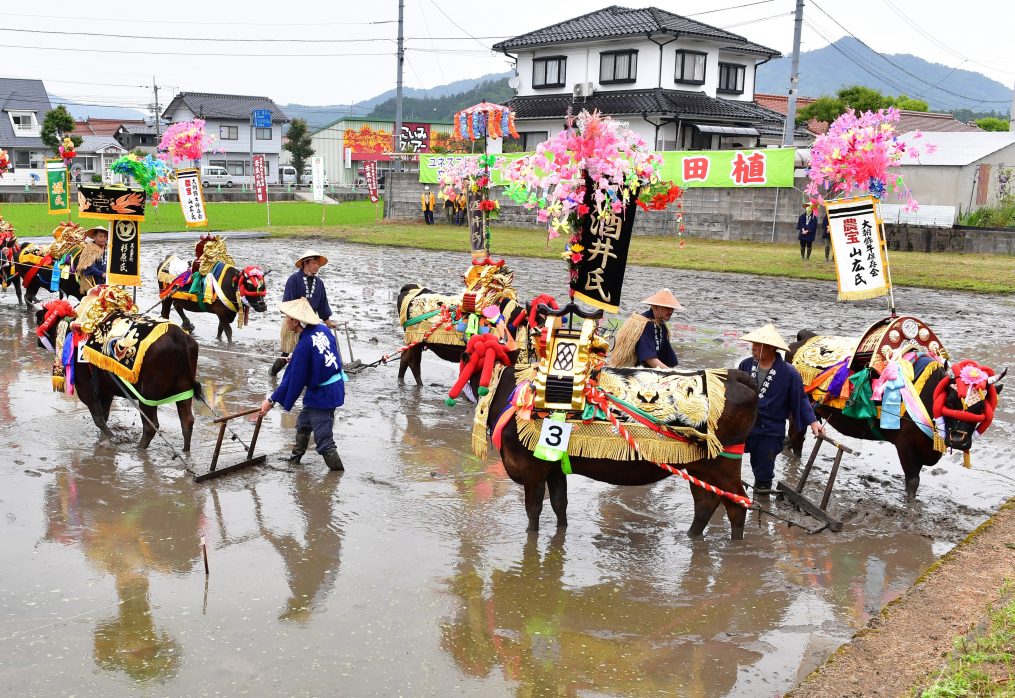Mibu no Hana Daue rice planting rite held in Kita Hiroshima with no audience to preserve tradition
“Mibu no Hana Daue (Taue)” in Kita Hiroshima, Hiroshima Prefecture, was inscribed in 2011 on the UNESCO Representative List of the Intangible Cultural Heritage of Humanity. About a dozen cows powerfully help plow a rice field while a dengaku troupe with traditional musical instruments and saotome rice planting maidens perform the ancient rice planting rite. Usually, over 6,000 people gather to see the event. However, the locals decided to have it without spectators this year.
“We could lead the cows safely, although we couldn’t practice enough due to the COVID-19,” Mitsugi Shiramasa, the 53-year-old head of Oasa-kazari-ushi Hozonkai (a local group for preserving the rite), said. “We were more nervous (than the cows),” he said with an expression of relief.
The traditional folk entertainment is held with many maidens and dengaku player in hot weather, involving hard activities like rice planting. Also, it’s hard to ask all participants and visitors to wear masks throughout the event. So, it’s best to have it “without spectators” and to cancel the parade in the local shopping area, they concluded. They also halved the numbers of the maidens and the instrument players.
The biggest reason to restart the event this year is the importance of handing the caw handling skills down to younger generations. Cow handlers must be skillful experts to lead them well and flexibly, depending on their physical condition and mood. The ritual was canceled for the past two years, and that was long enough to deprive the cattle farmers of the confidence to lead the bulls.
The economic impact of the traditional rite on spectators is said to reach tens of millions of yen per day, but it accompanies a risk of spreading the infection. So, the purpose this year was limited to just preserving the tradition. Takayuki Fujimoto, president of the preservation society, said, “We pray for a rich harvest, and that connects us in the communities tight. We reaffirmed the true value of the event.”
Some criticized that holding the rite on a smaller scale is “not right in terms of style conformity,” but Fujimoto said it’s important to preserve it, keeping up with the times. “We’d like to welcome many spectators back to the full-scale event next year. This is the first step toward this goal,” he said confidently.
Source: http://english.agrinews.co.jp/?p=10269

